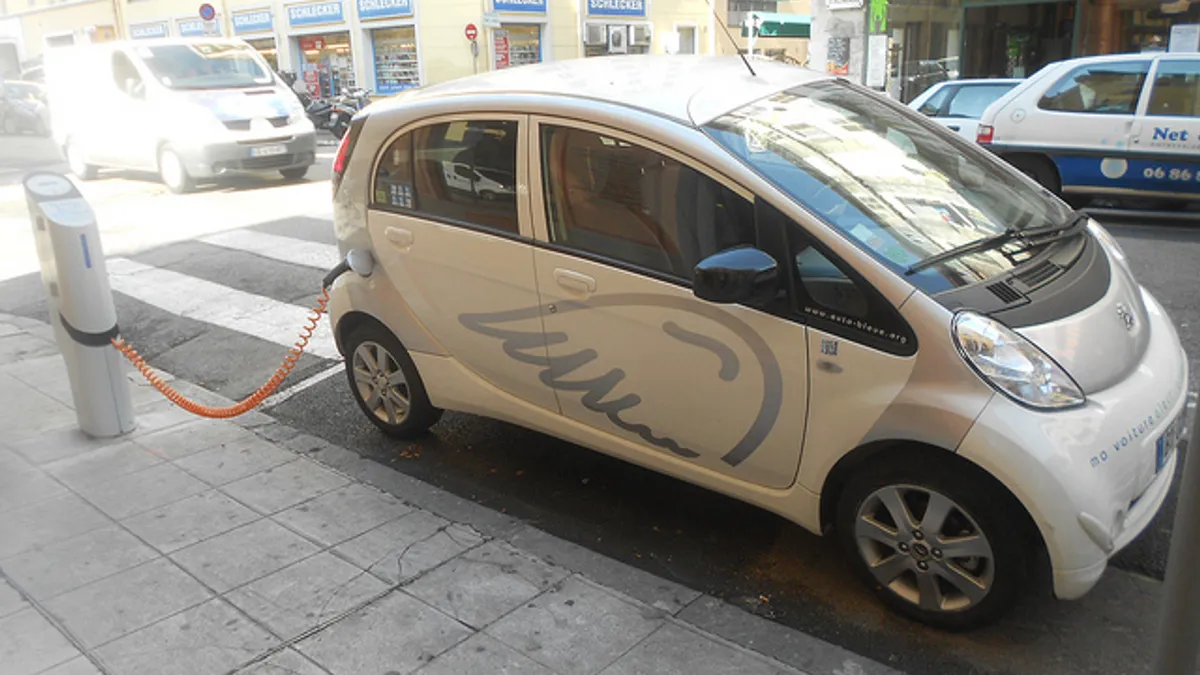Dive Brief:
- Nissan, in its quest to leverage electric vehicle (EV) technology, has begun testing a system that would utilize electric vehicles and demand response technology to help keep the lights on in a natural disaster.
- The company will attempt to use its "Leaf to Home" vehicle charging station to help power a Nissan dealership during normal business hours in hopes that the technology can help utilities respond to peak demand and provide emergency power to residences during disasters.
- The company will run two or three tests each month on designated days through January 2015. The country has seen an increased interest in distributed resources since a devastating earthquake and tsunami struck the country in 2011.
Dive Insight:
Nissan is testing new ways to utilize demand response technologies in Japan, noting that since the 2011 earthquake and tsunami the country has focused on ways to keep the power grid stable during emergencies. Tens of thousands were killed in the disaster, and the country's power grid was left in shambled with millions in the dark and a meltdown at the Fukushima nuclear facility.
The idea, the company said, could "accelerate the wider adoption of EVs and reduce society's carbon footprint."
Nissan is using Nissan Leaf electric vehicles and the "Leaf to Home" power supply system in the field tests, which run between 8 a.m. and 8 p.m. and test the effectiveness of electric vehicle batteries when used for energy management.
"Effective use of renewable energy and improvements in the efficiency of power generation facilities will enable better energy management in the future and help reduce environmental impact," the company said. "Field tests using EVs' high-capacity batteries that are being conducted globally are proving their effectiveness in energy management."
Nissan has sold more than 142,000 Leafs globally since launch, and said the Leaf's power storage capability in its onboard batteries, coupled with the Leaf to Home power supply system, is "proving attractive to many customers."
The tests are being conducted in Japan by ENERES Co. Ltd at sales outlets run by subsidiary Kanagawa Nissan Co. Ltd.















